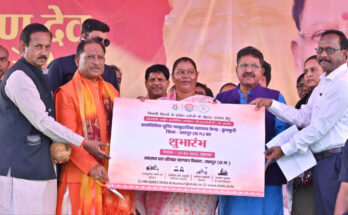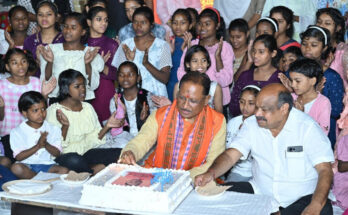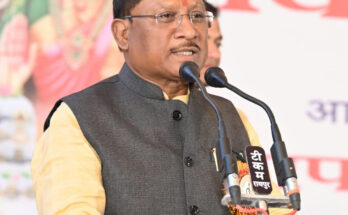45.7 percent voters cast their votes for the first time in the first general election.
Every vote is important in the development of the country
- Author- L.D. Manikpuri, Assistant Public Relations Officer
Raipur, October 3, 2023
The biggest revolution after the independence of the country was that public adult franchise was adopted for the elections of the Lok Sabha and the Legislative Assemblies of the states. In a newly independent country with extreme backwardness, extreme poverty and extreme illiteracy, every citizen who is not less than 21 years of age (now reduced to 18) and who, under any law, is a resident, of unsound mind, a criminal or a corrupt Granting the right to vote without otherwise being disqualified on the basis of illegal conduct was a great act of faith and confidence in the common people for the framers of the Constitution (Article 326). Article 324 says that there shall be an Election Commission. He shall superintend, direct and control all elections to Parliament and to each State Legislature and to the offices of President and Vice-President.
After the country’s independence, Indian leaders started preparations for the election process in July 1948 itself. However, till then there were no laws to conduct elections. Under the leadership of Dr. Bhimrao Ambedkar, the Drafting Committee worked hard to draft the Constitution, which was passed on November 26, 1949. However, it came into effect from January 26, 1950. India received rules and bye-laws to hold elections on that day and the country finally became the ‘Republic of India’. This was just the beginning of an extraordinary journey. Although India became independent on 15 August 1947, the first elections were held in 1951. It is important to know that the first general elections of independent India were held between October 25, 1951 and February 21, 1952.
After the implementation of the Constitution, the Election Commission was formed. The responsibility of conducting the elections was given to Indian bureaucrat, Sukumar Sen. In this way he became the first Chief Election Commissioner of India.
The biggest challenge in this was the population of India, which was about 36 crores at that time. About 17 percent of the world’s population was going to vote. This was the biggest election of that time. About 1,874 candidates and 53 political parties had contested the elections, including 14 national parties and these parties had contested 489 seats.
Upon implementation of the Constitution, India adopted the same voting age as was adopted throughout the world. With this, approximately 17.3 crore people above 21 years of age were found eligible to vote. Parliamentary constituencies were to be decided on the basis of census data, which was done in 1951. Illiterate population, election symbol design, ballot paper and ballot box, polling stations etc. were problems and challenges. Also, it had to be ensured that there was proper distance between the polling stations. Polling officers had to face many problems and challenges including their appointment and training.
However, it took time to overcome these challenges. When elections were finally held, 45.7 percent of the eligible population came out of their homes to vote for the first time. In this way, India became the world’s largest democracy, where the people elected a government for the people. How useful will one vote or one vote prove to be for the country and the state? What is the importance of voting? Why else? Many books have been written on this subject, but is it really necessary to vote for the interest of the country and the state? The serious answer is hidden in such a simple question. Just as water is needed for crops, trees-plants-greenery are needed for water, humans are needed for farming and humans need basic needs like grains-water, housing, education, hospitals, roads, electricity, employment. In such a situation, every vote is important for a healthy and strong democracy. Role and activism of Election Commission, political parties and common voters. Are full of sensitivity. Different categories of voters sometimes have to face situations of confusion. On this, the Election Commission continuously improves and amends the rules and procedures from time to time so that voters can easily understand the importance of their vote in a better way.
Democracy will be successful only when people vote. Everyone should vote together for the progress of the country. Voting is everyone’s constitutional right. Everyone should use it willingly. We are among the lucky ones that we have got the right to choose our government. We should appreciate and value it. This is the beauty of Indian democracy that whether it is an airplane owner or a common citizen who drives a cart, everyone has the right to vote. Everyone’s opinion is equal.
Therefore, it is necessary for every voter to vote for the proper development of the country and the state, and for a healthy and strong democracy.




